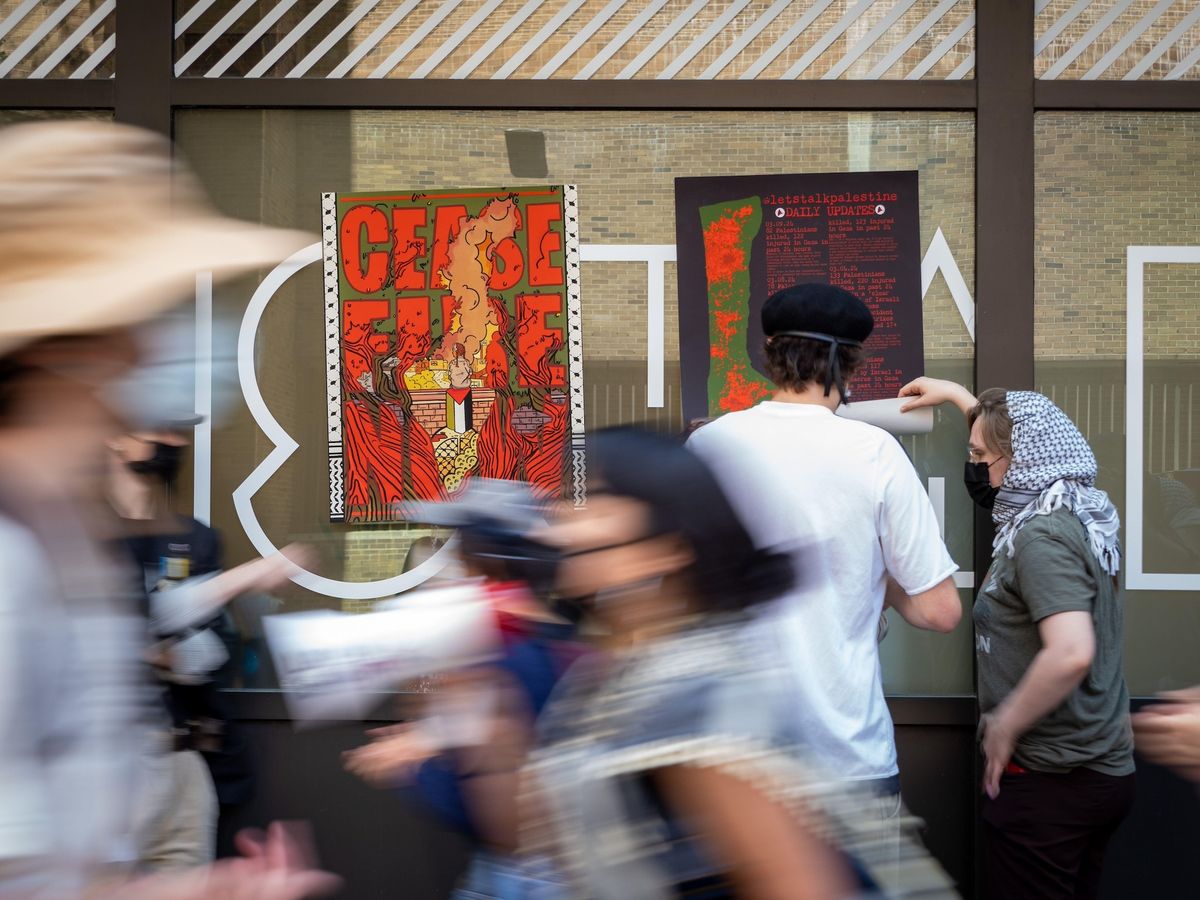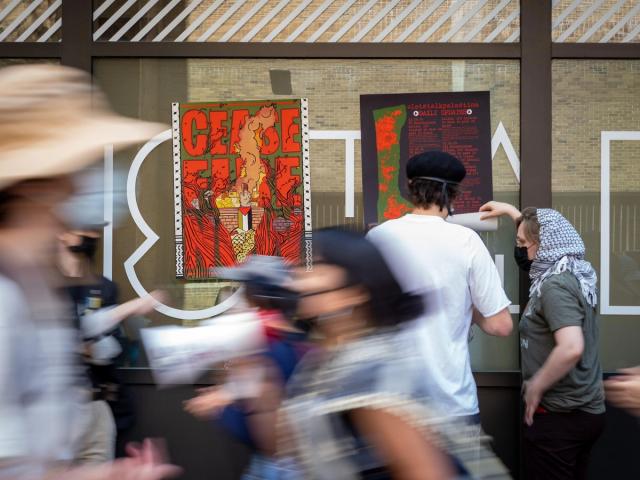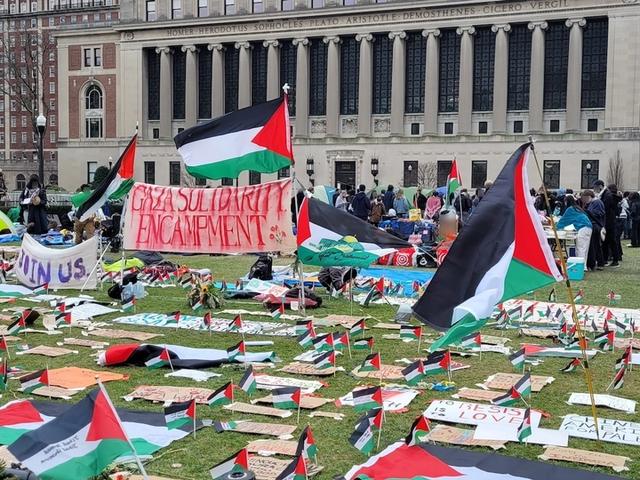As many students across the US settled into the autumn semester, hundreds of their peers across New York City rallied together as part of the Students for Justice in Palestine’s (SJP) National Day of Action. Groups at the Fashion Institute of Technology (FIT), the New School’s Parsons School of Design, the School of Visual Arts and New York University staged concurrent on-campus rallies against the war in Gaza on 12 September while large New York Police Department contingents looked on.
That rally, the first large-scale student demonstration of the new academic year, continued in the trajectory of a tumultuous spring in which police arrested more than 3,000 pro-Palestine protesters on university campuses nationwide, including at multiple art schools. At least one student demonstrator was taken into custody in connection with the 12 September rally, according to the Instagram account of SJP’s affiliate group at FIT, and fellow demonstrators have retained the courage of their convictions.
“I am here to stand proudly with my other peers and make my voice heard against the war,” one New School student who participated in both the 12 September protest and the spring demonstrations said, speaking anonymously for fear of retaliation. “I won’t back down until our demands are met.”
Yet many protesters are facing fresh obstacles and new consequences on campuses this autumn. In particular, some of the US’s top art schools have updated their policies on demonstrations, tightening restrictions and strengthening penalties ahead of the new term.
New semester, new campus policies
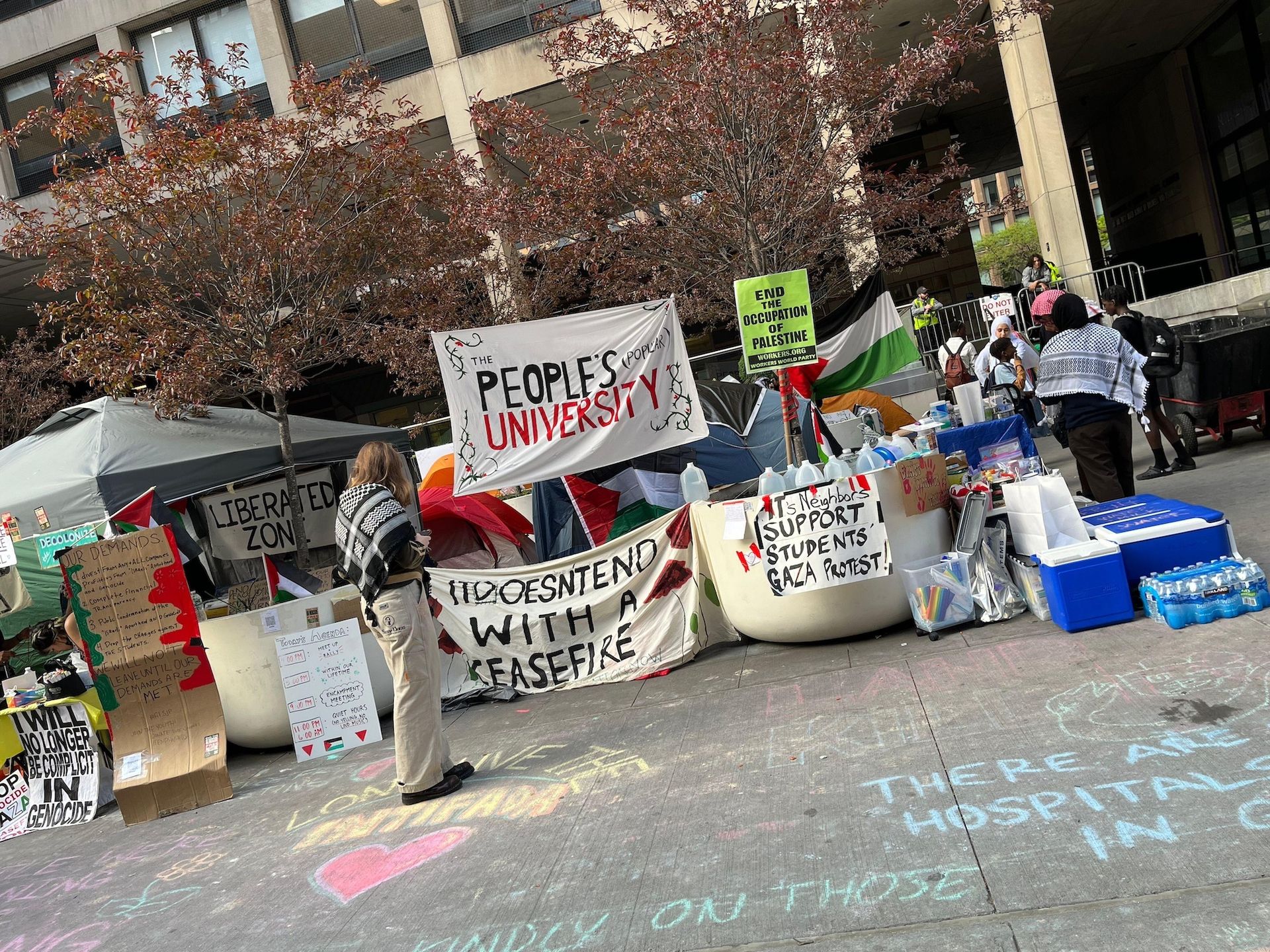
A pro-Palestine student encampment at the Fashion Institute of Technology in Manhattan Photo: Mpi099 / Media Punch / Alamy Live News
Among the universities toughening their guidelines is FIT, where students held numerous pro-Palestine rallies and protests in spring 2024. The NYPD made dozens of arrests at an encampment there in May, and the school’s administrators suspended at least one student demonstrator in advance of classes this autumn, FIT’s affiliate of SJP alleged on 17 August.
That same month, FIT’s administration issued new “temporary standards and guidelines for campus events and demonstrations”. The updated policies include an expansive list of locations where protests are explicitly prohibited and a total ban on encampments and “overnight demonstrations”—the latter of which “will be considered trespassing and addressed as such”.
Undeterred, FIT students held a back-to-school rally on 5 September to foster on-campus solidarity with Palestine and, as one student activist posted on Instagram, to “demand an end to FIT's complicity in the Gaza genocide, for our tuition to be invested into ethical and sustainable practices and to stand up for our rights to protest” despite the university’s “fascist” policies on student demonstrations.
An FIT student who declined to give their name for fear of retaliation called the university’s new guidelines “ridiculous”, adding: “FIT is trying to censor our freedom of speech. It’s not right, and it will only make us more determined to make sure we are heard by the administration and the world.”
Upping the pressure outside New York
The School of the Art Institute of Chicago (SAIC) also revised its regulations around demonstrations ahead of the autumn term. The latest edition of its student handbook, updated 4 September, states that group protests and demonstrations may only be staged at one location— the 280 Pit, a multi-use building on SAIC’s campus––and only after requesting permission via a form submitted at least three business days in advance. Additionally, the handbook reads, “students may not prevent or obstruct campus events or operations including class, meetings, interviews, ceremonies, on-campus activities or other SAIC business”.
“These new policies are trying to suppress our right to protest, and I won’t stand for it,” says an SAIC student who wished to remain anonymous for fear of retribution. “The administration should be ashamed of themselves.”
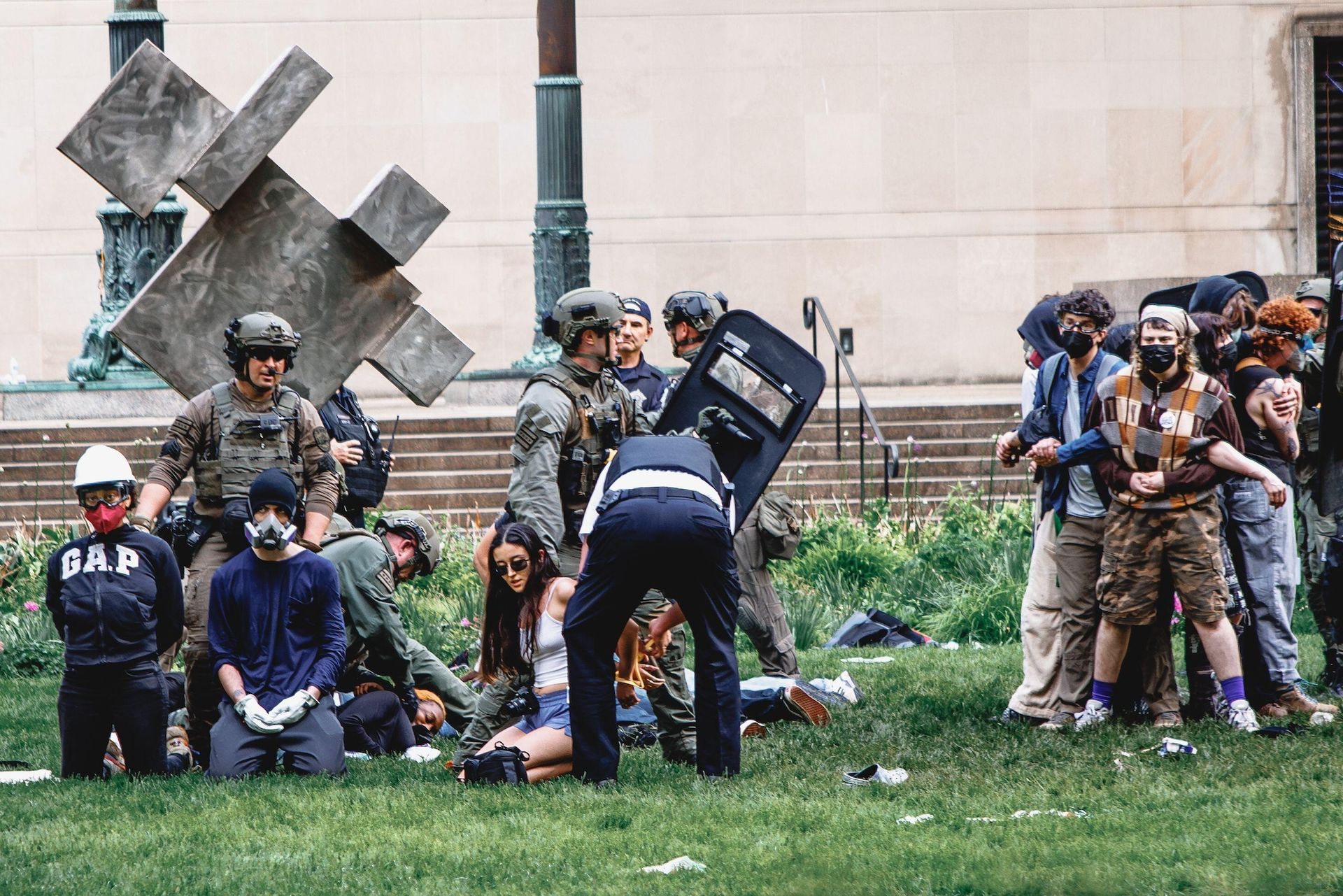
School of the Art Institute of Chicago students and other pro-Palestine protesters are arrested at the Art Institute of Chicago on 4 May 2024 David Jank / Alamy Stock Photo
The school’s updated guidelines follow the arrest of 68 on-campus demonstrators against the war in Gaza this past May, including at a joint encampment erected by students from SAIC and Columbia College Chicago. However, officials at SAIC and the Art Institute of Chicago chose not to pursue criminal proceedings, leading to all charges being dropped in July.
Students at the Rhode Island School of Design (RISD) affiliated with SJP also made headlines in May when they occupied a campus building for more than four days. Crystal Williams, RISD’s president, met with the protesters multiple times in pursuit of an amicable resolution but eventually “made clear” that the school’s leaders “weren’t going to budge on” the students’ demands, according to a spokesperson for the demonstrators, who left of their own volition on 9 May. When additional protesters staged a sit-in during the original protesters’ departure, Williams threatened academic expulsion if they too did not vacate the premises by an appointed time that afternoon.
RISD's policy on campus demonstrations was updated on 16 September. However, it is unclear how much of the policy has changed since the events of last spring as no previous version of the policy is available online and a university spokesperson had not responded to a request for comment by publication time.
The school’s guidelines now broadly dictate that “students must allow other community members freedom of movement on campus and the freedom to engage in the performance of their duties and the pursuit of their educational activities”. The policy continues: “A protest, rally or demonstration must not interfere with the missions, processes, procedures or functions of the College.” The policy also specifically prohibits “unauthorised entry and/or use of any [RISD] space”, including any “room, building, area of campus or other space controlled by the university” in a manner outside the “standard rules or policies governing operations for that space”.
As the war in Gaza enters its second year, students at multiple US arts universities are already facing harsher consequences should they decide to organise—or continue organising—protests in solidarity with Palestinians.


